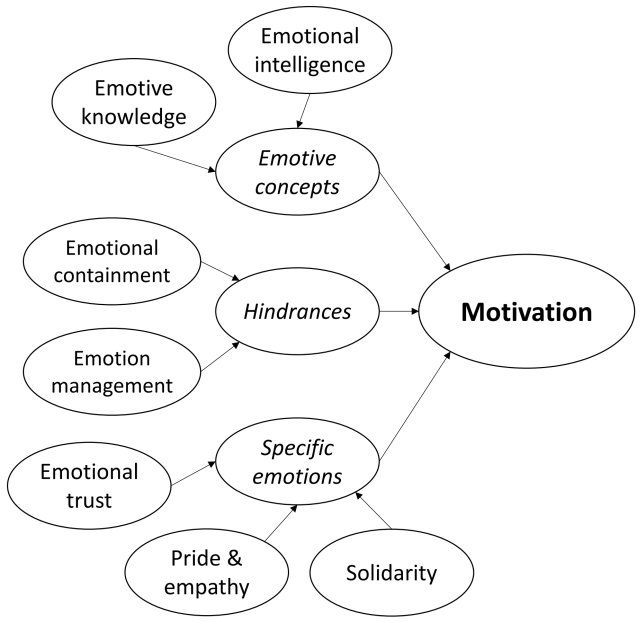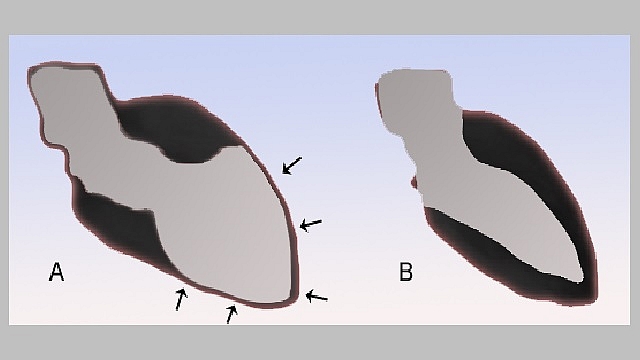
The role of emotions in knowledge management
Knowing is a human act1, with knowledge being the residue of thinking and created in the present moment. Emotions are also an aspect2 of human thought processes, so they potentially have a relationship with knowledge and its management. Because of this, understanding and developing emotional intelligence – which is the ability, capacity, skill, or self-perceived ability to identify, assess, and manage the emotions of one’s self, of others, and of groups – has been identified3 as a knowledge management (KM) technique.
With the aim of improving understanding of the role of emotions in KM research, a recent conference paper4 by Hornung and Smolnik presents the findings of what they state is the first systematic review of research connecting emotions and KM.
There is strong debate5 about “emotion” as a scientific term, and there are numerous definitions, but for the purposes of their review Hornung and Smolnik define emotion as “organized responses that cross the boundaries of many psychological subsystems, typically in response to an internal or external event, which has been assessed as positive or negative for the individual.”
Hornung and Smolnik first describe an emotions-in-KM framework which they use to structure their review (Figure 1). They state that:
In order for any KM process to be triggered, an employee has to be motivated to start it – thus making
motivation our starting point. Processes can be any type of process related to knowledge management … The goal of any given KM process is to contribute towards a greater goal, which we call KM success. Success can be the “creation” (explication or codification) of new knowledge or simply “capturing the right knowledge, getting the right knowledge to the right user, and using this knowledge to improve organizational and/or individual performance.”

They then conducted a comprehensive keyword search, identifying a final list of 32 relevant papers. This consisted of 22 papers treating emotions and emotive concepts as motivation, four papers showing emotions directly in KM processes, and six declaring emotions to be part of KM success. The 32 papers were then analysed.
Emotions as motivation
Figure 2 summarizes the results of the analysis according to the different clusters of emotive concepts identified in the 22 motivation papers. The arrows represent contribution. Different aspects contribute to a cluster, and in turn, the three clusters – emotive concepts, hindrances, and specific emotions – all contribute to motivation.

Emotions in the KM process
The four papers showing emotions directly in KM processes revealed that:
- It is argued that emotive designs in information systems, such as KM processes and knowledge management systems for decision support, are starting to become the norm.
- The concept of emotive knowledge has specific regard to the tacit knowledge conversion process, as emotive knowledge strongly impacts it.
- A two-sided theory of technological upset versus technological ease during unlearning is an important concept and specific kind of knowledge acquisition.
- The emotional intensity occurring during knowledge creation leads to intensified collaboration in high-quality connections.
The low number of papers meant that the concepts could not be clustered.
Emotions as part of KM success
The six papers showing emotions as part of KM success revealed that:
- The emotional outputs created through the KM process(es) can clearly be seen as positive and, thus, contributing to KM success.
- There are massive emotional benefits from knowledge sharing which strongly increase the employees perceived value of knowledge sharing.
- Metaphors, which are often particularly used as a way of transferring tacit knowledge, create emotions.
- Team arousal and stress can be a negative outcome of KM, lowering performance of business process teams and preventing KM success.
- An emotional epiphany can be an indicator for KM success and the acknowledgement that an employee or a team created something new through the combination of knowledge and capabilities.
- A concept called emotional connectedness can be leveraged through the willingness to implement “soft” change and KM processes, especially knowledge transfer. This emotional connectedness is seen as a highly desirable outcome of KM as it ultimately can be viewed as a measure of successful KM.
- Emotional climate can be viewed as a success factor, which is of utmost importance for a learning organization, and also represents a dimension of KM success.
As was the case with emotions in the KM process, the low number of papers looking at emotions as part of KM success meant that the concepts could not be clustered.
Research opportunities
In consideration of their findings, including that there were relatively few papers addressing emotions in the KM process and emotions as part of KM success, Hornung and Smolnik have made the following recommendations for future research:
- Research opportunity 1: Future research could focus on emotions as KM outcome and contributor to KM success.
- Research opportunity 2: Research could be to examine a chosen emotion or particular set of emotions and their role within KM.
- Research opportunity 3: Future research could focus on emotive knowledge and which specific emotions support or hinder the creation and use of it.
- Research opportunity 4: Researchers could test whether KM can enhance or improve emotional intelligence.
References:
- McDermott, R. (2000). Why information technology inspired but cannot deliver knowledge management. In Knowledge and communities (pp. 21-35). ↩
- Nussbaum, M. C. (2003). Upheavals of thought: The intelligence of emotions. Cambridge University Press. ↩
- Serrat, O. (2017). Understanding and developing emotional intelligence. In Knowledge Solutions (pp. 329-339). Springer, Singapore. ↩
- Hornung, O., & Smolnik, S. (2018, January). It’s Just Emotion Taking Me Over: Investigating the Role of Emotions in Knowledge Management Research. In Proceedings of the 51st Hawaii International Conference on System Sciences. ↩
- Dixon, T. (2012). “Emotion”: The history of a keyword in crisis. Emotion Review, 4(4), 338-344. ↩






